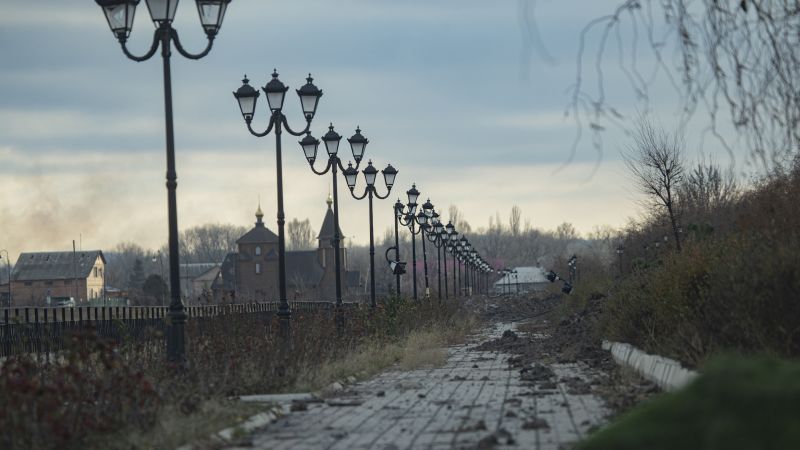Editor’s Note: Michael Bociurkiw (@WorldAffairsPro) is a global affairs analyst currently based in Odesa. He is a senior fellow at the Atlantic Council and a former spokesperson for the Organization for Security and Cooperation in Europe. He is a regular contributor to CNN Opinion. The opinions expressed in this commentary are his own. View more opinion at CNN.
Odesa
CNN
—
When the war in Ukraine finally comes to an end, the besieged city of Bakhmut in eastern Ukraine will go down as one of the most recognizable symbols of the conflict.

A place where happiness was brutally replaced with blood-drenched killing fields.
It will also be recorded in history as a battle that exposed more than anywhere the meat-grinder approach of Russian fighting. Where sending wave upon wave of fighters – including former convicts recruited by the Wagner mercenary group and Russian elite forces – became a military tactic to dislodge Ukrainian forces from the city.
For a prize of highly-questionable military value, the Kremlin, not known for valuing human life – even that of its own citizens – established a new threshold that tolerated the loss of several of its own combatants to every Ukrainian.
“The Russians at the moment, despite trying for six months, with huge numbers of personnel and huge numbers of losses, have been unable to take the town and at the moment have made very, very slow progress,” Western officials said in a briefing last week.
Various experts and entities have debated the military significance of capturing Bakhmut – a city with a pre-war population of around 70,000 – with most agreeing a win or loss there would not alter the trajectory of the war. These days, those remaining are thought to number fewer than 4,000, including 38 children.
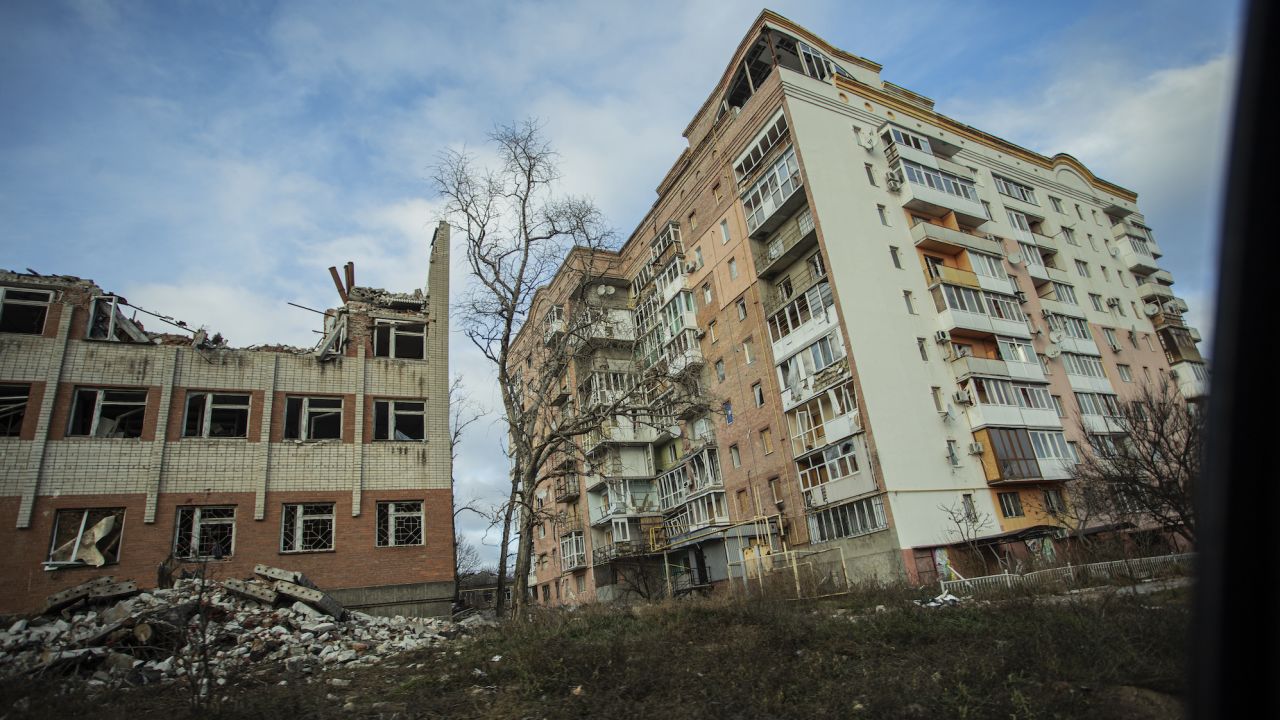
Instead, for the Russian side, capturing the city would bring limited military value but likely significant propaganda value for internal consumption – especially for Russian war hawks and bloggers who have been critical of the Kremlin’s war effort in Ukraine.
Taking Bakhmut would be the first Russian gain since it captured (and later lost) the key southern Ukrainian city of Kherson in November. It would also bring a boost to Wagner, which is said in leaked documents to have 22,000 troops in and around Bakhmut, possibly outnumbering the Ukrainian contingent there.
But even so, if NATO estimates of Russian losses of five soldiers to every Ukrainian is to be believed, the cost is significant.
That Ukrainian forces have demonstrated such endurance in the battle for Bakhmut should come as little surprise. In the first phase of the war in 2014 – and not far from Bakhmut itself – Ukrainian “cyborg” troops held off heavily-armed Russian backed thugs at Donetsk International Airport for an astonishing 242 days.
Like the current battle for Bakhmut, it too became emblematic of Ukraine’s tenaciousness to defend itself against Russia’s aggression – particularly considering the Ukrainian Armed Forces were far less prepared and equipped. (In January 2021, citing the so-called cyborgs’ “stability, fearlessness and steadfastness,” Ukrainian President Volodymyr Zelensky called the battle for the airport among the fiercest in that phase of the war).
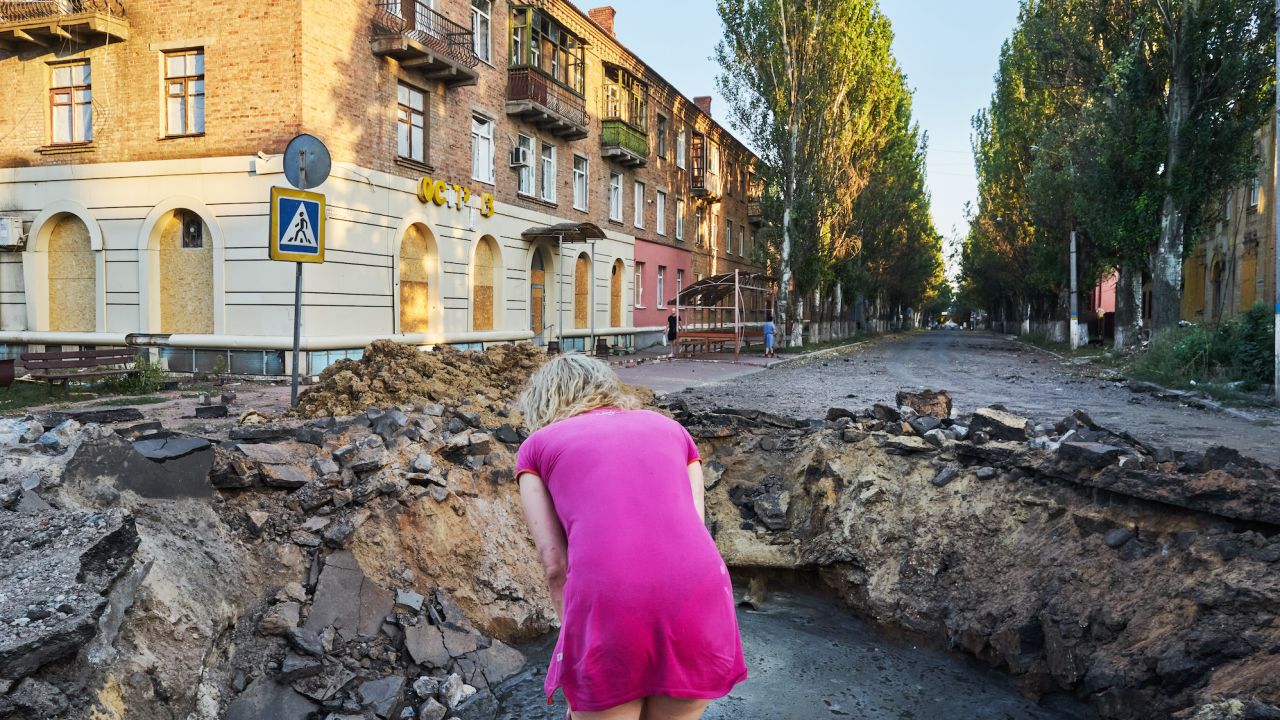
In the Ukrainian public imagination, the average town and village evokes a romantic image of impeccably-maintained gardens hemmed in by sunflowers and tree-shaded parks. It is a place of plentiful cultural and religious symbols, such as gold-domed churches, art galleries and museums.
An image used to bring solace, especially during times of displacement. Bakhmut was no different: Andriy Yermak, head of Ukraine’s Office of the President, said journalists, historians and local artists have long called it “one of the most picturesque cities in eastern Ukraine.”
For some Ukrainians, Bakhmut’s reputation as a fortress extends back centuries when the area was fought over by pro- and anti-Moscow forces.
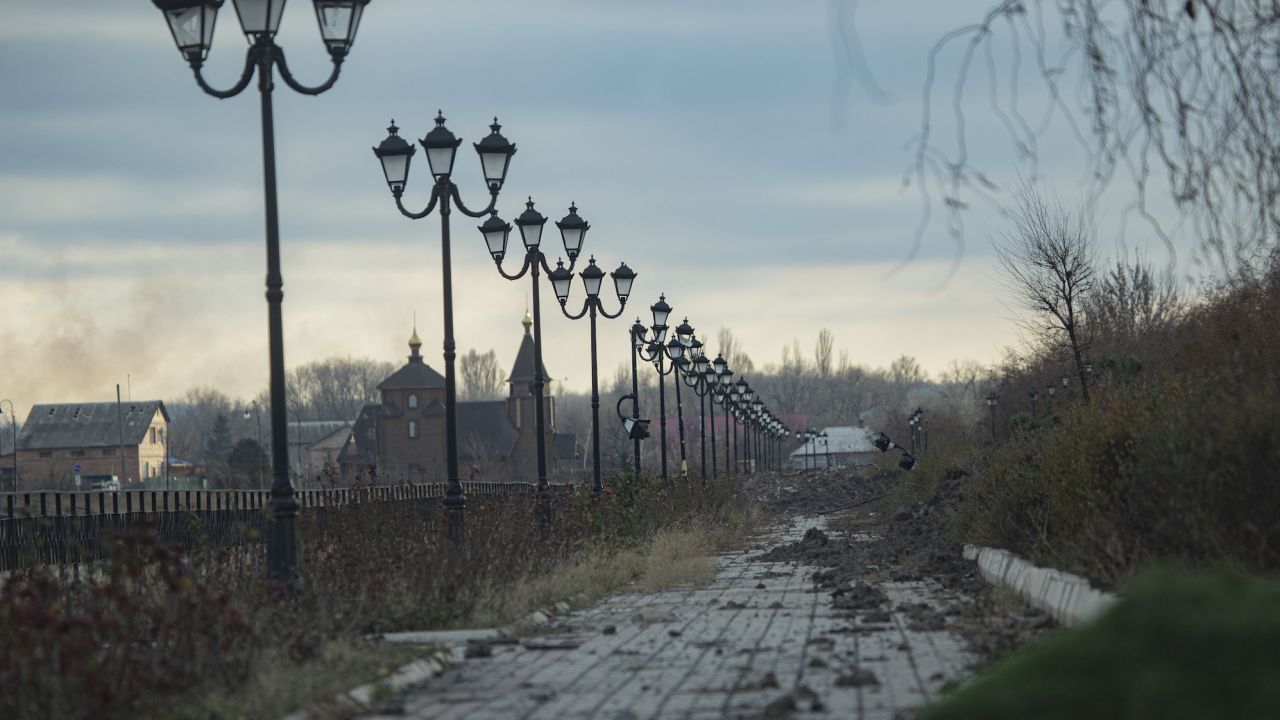
In more recent decades, during a typical summer, the banks of the Bakhmutka River were lined with flower gardens, parklands, water fountains, ducks and swans. A sign at the entrance to the city welcomed visitors with the slogan: “Bakhmut: A City Open for Good.” Elsewhere, the New York Street Pizza once offered a “designer interior” – but pizza pies of questionable taste.
Previous to the war, the city – formally known as Artemivsk until 2016 – was a thriving metropolis and center of learning. It had an industrial base of salt and gypsum mining, and attracted tourists with its natural beauty and historic architecture.
At its peak, local sparkling wine producer ArtWine was producing some 25 million bottles a year of bubbly in caves with a unique micro-climate. It even managed to find new suppliers for grapes after Crimea, which supplied 70% of grapes used in its annual production, was illegally annexed by Russia.
But the scale of the bombardment of Bakhmut over the past ten months will most likely make the city largely uninhabitable. “It wouldn’t resemble what it might have been a year ago. Bakhmut is completely destroyed as a town, unlivable by any normal standards,” western officials said in a briefing last week.
“The enemy switched to so-called scorched earth tactics from Syria. It is destroying buildings and positions with airstrikes and artillery fire,” Colonel General Oleksandr Syrskyi, commander of Ukraine’s ground forces, said of Bakhmut.
History, as we’ve seen so many times during this war, has a way of repeating. “Over the centuries the Soviets had done lots of damage in Bakhmut to wipe the Ukrainian spirit,” Yevhen Hlibovytsky, former political journalist and founder of the Kyiv-based think tank and consultancy, pro.mova, told me.
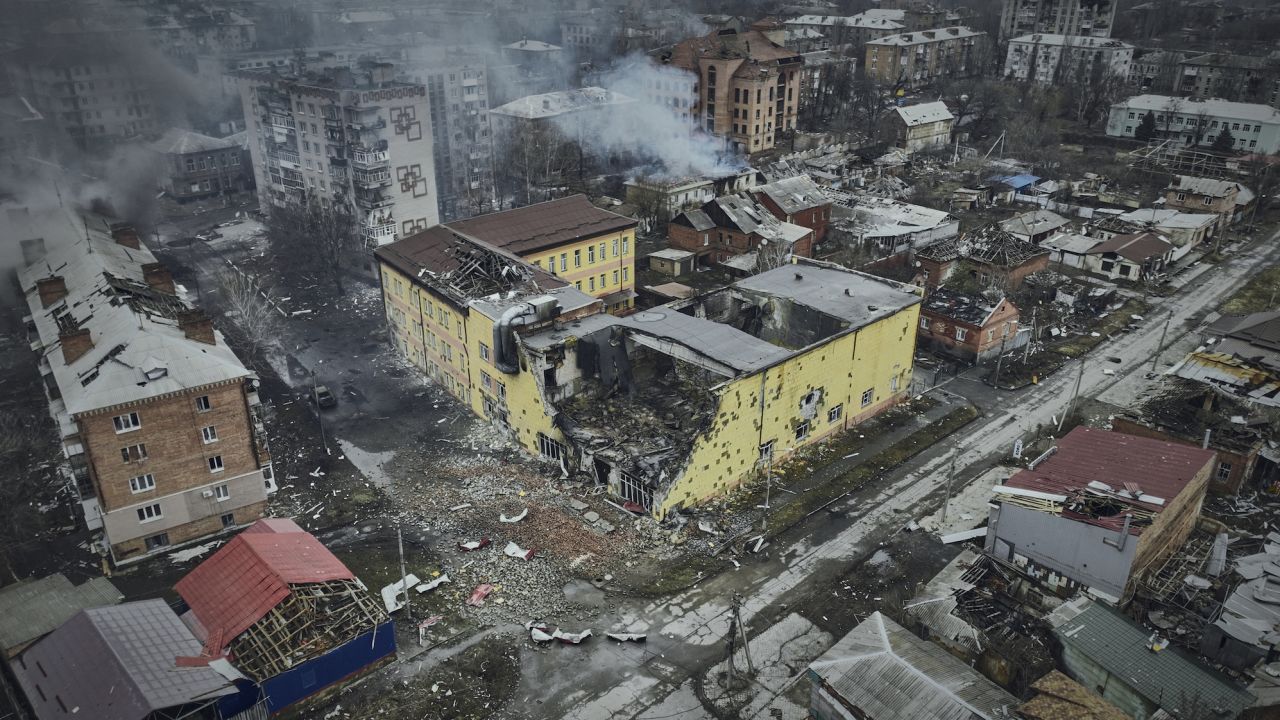
The gravity of Russian inhumanity in places such as Bucha and Bakhmut defy comprehension. In Bucha, Russian soldiers left hundreds of civilians dead in the streets and in mass graves.
War correspondent Janine di Giovanni, who has reported on conflicts ranging from Syria to Rwanda, wrote in a recent Vanity Fair article that the Russian atrocities she witnessed in Bucha, surpassed anything she had seen previously. Describing a young male victim, she reported: “eyes were gouged out, his teeth were knocked clean from his jaw. A metal skewer inserted through his right eye had pushed through to the other side of his left ear.”
Just last week, fresh reports emerged of Russian illegal logging on an “uncontrolled, barbaric” industrial-scale that will “inevitably lead to catastrophic consequences for the environment,” according to Ukrainian Deputy Defense Minister Hanna Malyar.
Little wonder then, as the full-scale invasion passes the 400-day mark, that many Ukrainians believe their country – home to seven UNESCO World Heritage sites – is being systematically destroyed by Russian forces.
No Ukrainian, whether inside or outside their homeland (at least the many that I have met), wishes for the war to be prolonged for a day longer. At the same time, with Russian forces literally raping and pillaging their way through Ukraine, the willingness to accept territorial concessions is zero.
The Ukrainian soul is bleeding like never before, but the desire to fight against Russian aggression is even stronger. Amid leaked reports that the Ukrainian side is short of ammunition and weaponry – and taking heavy losses – now is the time for the West to up its game even further and provide the Ukrainian Armed Forces with the muscle it needs to push the Russians back to pre-2014 lines.
It’s almost impossible to predict how the war will end. Even if the Kremlin agrees to a peace deal, they have a well-deserved track record for breaking international accords. Western leaders will need to employ courage and imagination to nudge Russian President Vladimir Putin.
As for Zelensky, with repeated polling over the last few months showing almost 90% of Ukrainians opposed to territorial concessions, if peace meant giving up even an inch of Ukrainian soil, he would need to be prepared to become politically unpopular to end a war that is defying resolution.
Ukrainian historian Volodymyr Masliychuk, from the National University of Kyiv-Mohyla Academy, told me via email that salt, which is in plentiful supply in the area around Bakhmut, has sparked many conflicts over the centuries.
Once again, it seems, the riches of Bakhmut are being fought over.
“The battle for Bakhmut in winter-spring 2023 will surely enter the history books as the bloodiest battle in Europe since World War II,” said Masliychuk.
But what will remain once the guns go silent? When will Bakhmut’s flowers ever bloom again?

